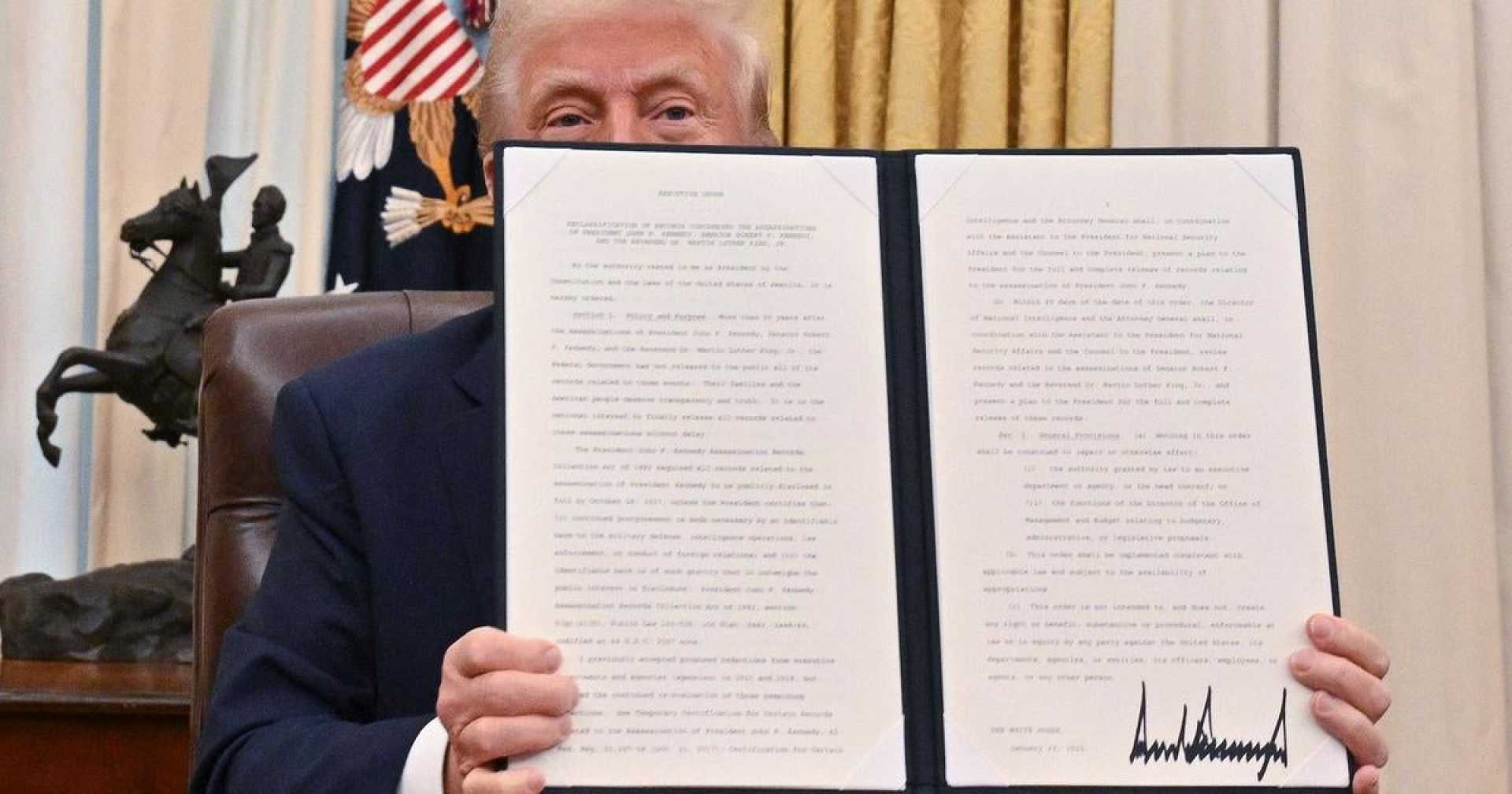News
Trump Orders Release of Final JFK Assassination Files

WASHINGTON — President Donald Trump signed an executive order Thursday to declassify the remaining government documents related to the assassinations of President John F. Kennedy, Senator Robert F. Kennedy, and civil rights leader Martin Luther King Jr. The move fulfills a long-standing demand for transparency surrounding the 1963 assassination of JFK, which has fueled conspiracy theories for decades.
“A lot of people were waiting for this… for years, for decades,” Trump said during the signing ceremony. “Everything will be revealed.” The order mandates the release of approximately 14,000 documents, some of which have been partially or fully withheld due to national security concerns.
Dr. Michael Baden, a forensic pathologist who chaired the forensic pathology autopsy panel for the 1977 House Select Committee on Assassinations, told Fox News Digital that the release could clarify lingering questions. “Expectations are that the 14,000 documents may shed a light on the various mistakes or disinformation that have circulated since,” Baden said. He emphasized that the committee’s findings, which concluded Lee Harvey Oswald acted alone, remain valid.
The Warren Commission, established in 1964, determined that Oswald fired three shots from a rifle, with the fatal bullet striking Kennedy in the head. However, skepticism persisted due to flaws in the initial autopsy and the circumstances surrounding Oswald’s death. Jack Ruby, who killed Oswald two days after the assassination, also acted alone, according to the commission.
Baden noted that the delay in releasing the documents may have been due to concerns about national security and potential embarrassment to U.S. agencies. “There’s a feeling that the main reason these haven’t been released is because of the embarrassment it could bring to the U.S.,” he said.
The release of the documents is unlikely to end the controversy, experts say. Rex Bradford, president of the Mary Ferrell Foundation, the largest electronic archive of assassination documents, acknowledged that the assassination remains a “sore spot in American history.” He added, “The best the government can do is say, ‘OK, we’ve gone through all our files. Here’s what we have. It’s up to history to decide now.'”
John R. Tunheim, a federal judge who chaired the Assassination Records Review Board in the 1990s, echoed this sentiment. “I don’t think it’ll end it completely because Americans love to dig into conspiracies,” he said. “But it will eliminate a major reason in people’s minds why they still have doubts.”
The documents are expected to provide additional context but are unlikely to reveal a smoking gun. Gerald Posner, author of “Case Closed: Lee Harvey Oswald and the Assassination of JFK,” said recent releases have been “a tremendous disappointment” for those hoping to uncover a deep-state plot.
For the Kennedy family, the release is a mixed blessing. Kerry Kennedy, daughter of Robert F. Kennedy, expressed hope that the documents would reduce conspiracy theories. “I hope in some way the release of the documents will lead to a decrease in the conspiracy theories that are far more painful than the truth itself,” she said.
As the nation awaits the full disclosure, the JFK assassination remains a defining moment in American history, one that continues to captivate and confound.












